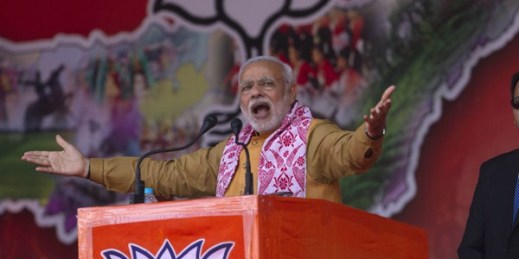
In the short time since Indian Prime Minister Narendra Modi took office in May, he has revolutionized his country’s foreign relations. Modi has defied conventional wisdom, upended national traditions and launched a peripatetic campaign of rebuilding India’s ties to other nations. The hallmark of India’s foreign policy under Modi is the pursuit of tangible, preferably signed results. Its motivating objective is fomenting investment and economic growth. Ideological concerns have been relegated far down the priority list. Modi’s international relations early in his term are reminiscent of Turkey’s old “Zero Problems” formula from a few years ago, a philosophy that collapsed […]

